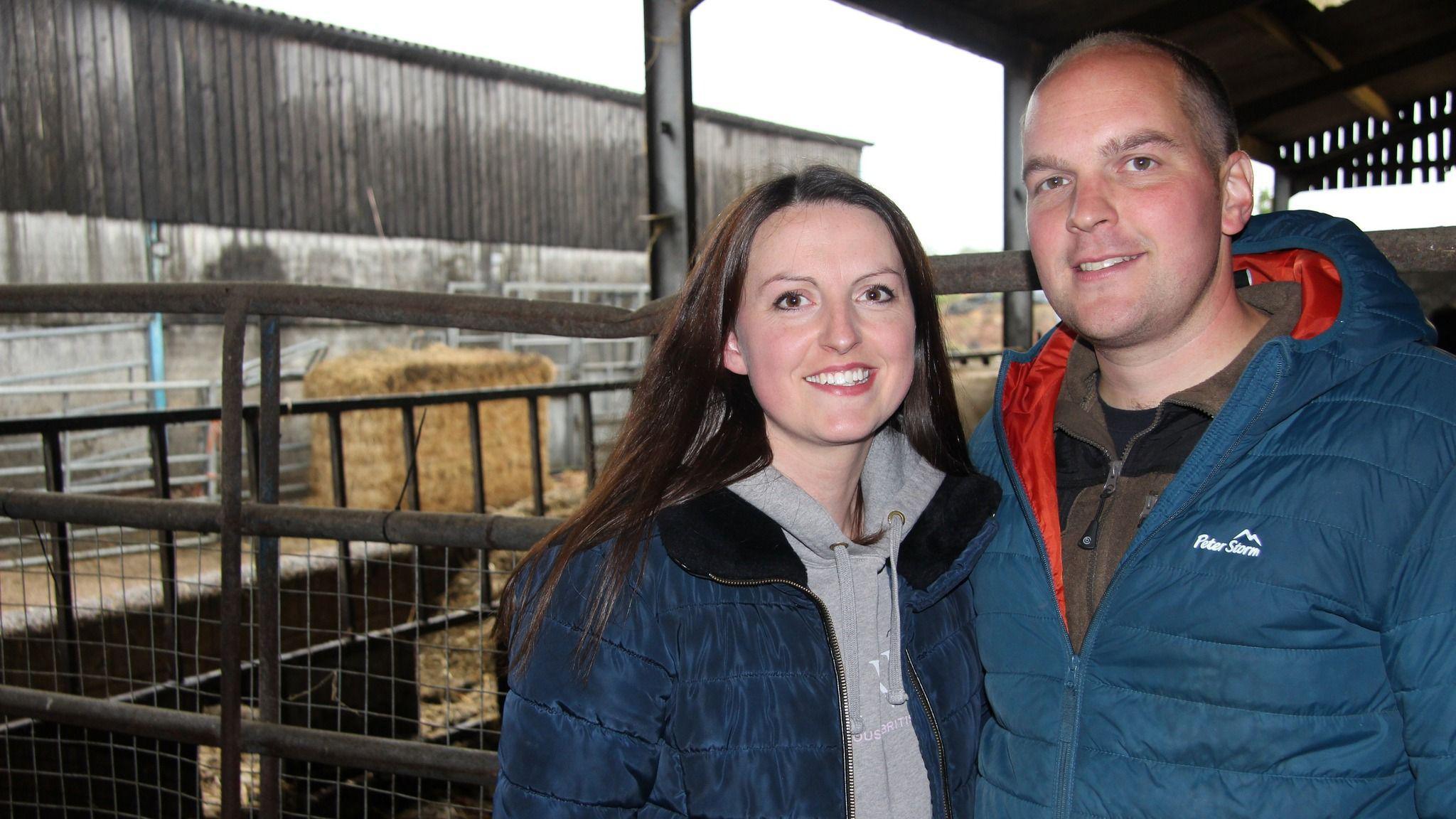Reform UK opts to halt sale of council farm estate

Deputy leader Martin Murray says the council wants to help new farmers "get on the ladder" to support food production
- Published
A local authority's Reform UK administration has decided to halt the planned sale of council-owned farms.
There are currently 63 equipped tenanted farms in Staffordshire along with additional rural properties and land, covering approximately 6,500 acres.
The county council first began offering farms for rent in 1908, with a focus on stock rearing and dairy production.
Deputy leader Martin Murray said it would help young farmers "get on the ladder".
Most of the farms are operated as dairy units, while others focus on rearing beef cattle and sheep and a few on arable production.
Holdings are available to new entrants into the industry as well as those looking to progress their farming careers.
Members of the authority's cabinet also spoke out against the use of farmland on the county estate for solar panels and battery energy storage - but said the use of its buildings would be considered.
The selling off of county farms in Staffordshire has proved controversial in previous years.
In 2008 the council's then-Labour administration considered sales – a move that was strongly opposed by the agricultural community and later dropped.
Several farms have been sold in more recent years however.
In 2019 the council's then-Conservative administration revealed plans to sell off 16 farms from its rural estate to raise funds for services.
The authority aimed to bring in around £20m from the sales, with proceeds earmarked for investments in health, care and infrastructure.
Farms sold in the first round included sites in Rugeley, Gnosall, Eccleshall and Hilderstone.
Food security
Explaining the policy, the council's deputy leader Martin Murray posted on social media "we believe in food security, we believe in helping new farmers, young farmers get on the ladder to feed our nation."
Councillor Jack Rose, who became the authority's first Green Party councillor when he was elected in May, expressed support for the stance.
"It's important to protect the future of our agricultural productivity in our county," he said.
"Not only does this benefit the local economy by ensuring long-term job security, but also protects us from rising food prices in an increasingly uncertain global market."
He added he also supported the authority's decision not to allow farmland to be used for solar panels.
This news was gathered by the Local Democracy Reporting Service which covers councils and other public service organisations.
Get in touch
Tell us which stories we should cover in Staffordshire
Follow BBC Stoke & Staffordshire on BBC Sounds, Facebook, external, X, external and Instagram, external.
Related topics
- Published28 June

- Published9 October

- Published3 May
